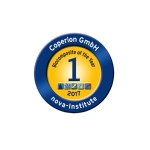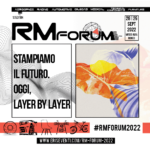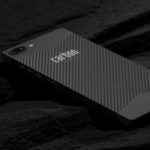The 230 participants in the 2017 Biocomposites Conference Cologne (BCC), the conference on natural fiber and wood-plastic composites organized by Nova-Institute (Cologne, Germany) held December 6-7 in Cologne, Germany, chose three winners from six nominees for Biocomposite of the Year innovation awards. The award highlights biocomposites and their applications that entered the market in 2017 or are just about to be launched, in a wide range of applications such as construction, automotive and consumer goods. Appearance and feel, green image, weight savings, shorter cycle times, scratch resistance and, above all, a lower CO2 footprint are important factors for this trend. Nova-Institute and Coperion GmbH (Stuttgart, Germany), the sponsor of the Biocomposite of the Year Innovation Awards, are proud to announce the winners:
GreenBoats (Bremen, Germany): Green Bente24 – boat from 80% renewable materials: Usually, mass-produced boats are made of fossil-based resins, glass fibers and plastic foam. By contrast, GreenBente24 from GreenBoats is made from 80% renewable materials like flax, cork and bio-based epoxy resin. The GreenBente24 has the same weight and stiffness as a standard boat. The boat achieves a 80% reduction of carbon footprint compared to other options, is thermally recyclable and has a particularly pleasant living climate.
Raimund Beck Nageltechnik GmbH (Mauerkirchen, Austria): LignoLoc – Collated wooden nails: Nails made from wood are one of the oldest known fasteners in the world, thus Raimund Beck Nageltechnik GmbH has developed collated wooden nails (arranged in strips) for use with pneumatic nail guns. This new technology requires no pre-drilling, offers maximum holding power due to a natural welding effect with the base wood and offers new application fields for domestic beech wood veneer and can replace aluminum or steel nails in many applications.
Eindhoven University of Technology (Eindhoven, Netherlands): Fully bio-based pedestrian bridge: A fully bio-based pedestrian bridge, the first in the world, has been realized at the Eindhoven University of Technology. After a successful load test (5 kN/m2), the bridge was installed by the company NPSP bv. Flax and hemp fibers provide the strength for the bridge, combined with a bio-based epoxy resin. Polylactic acid (PLA) bio-foam provides the core. The production method was vacuum-infusion: layers of natural fibers were glued around a laser-cut shape of bio-foam.













